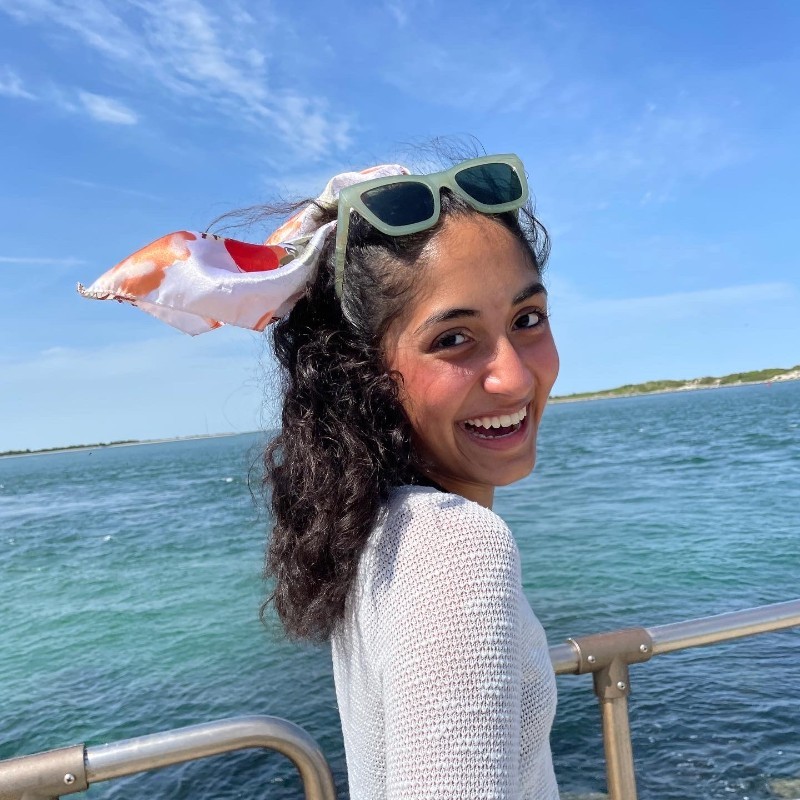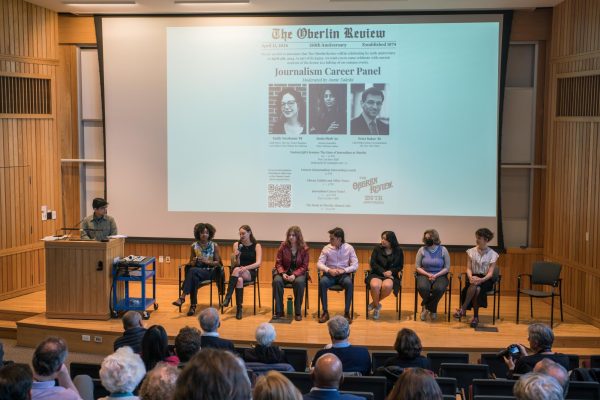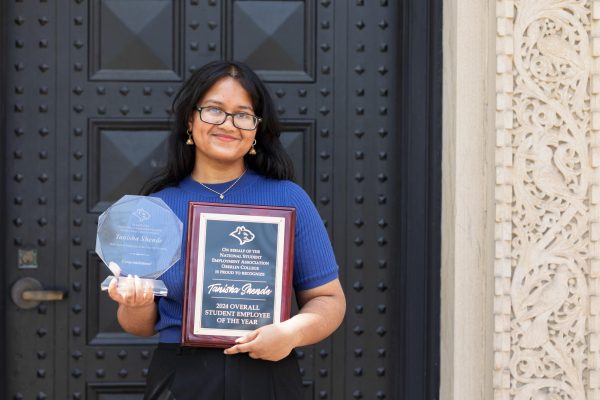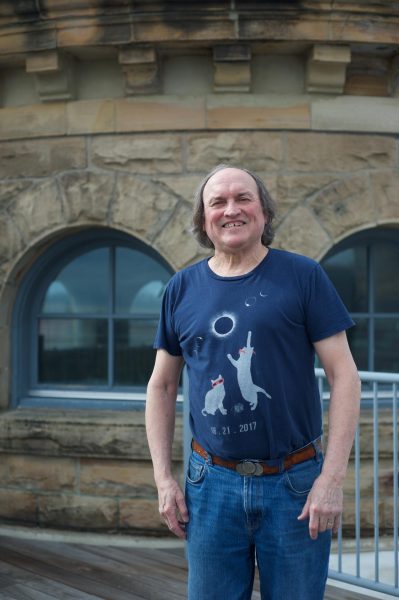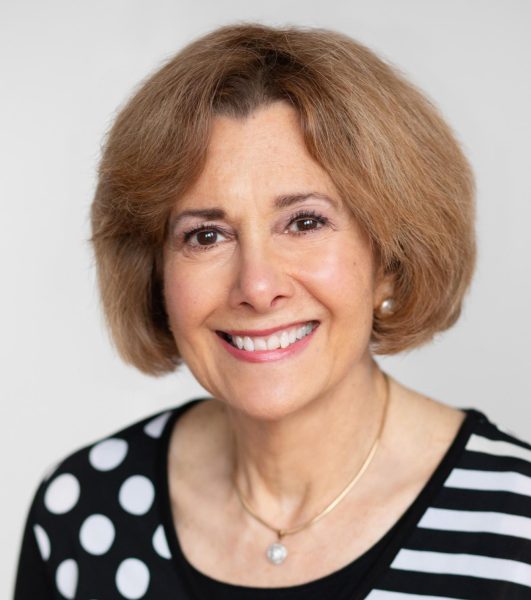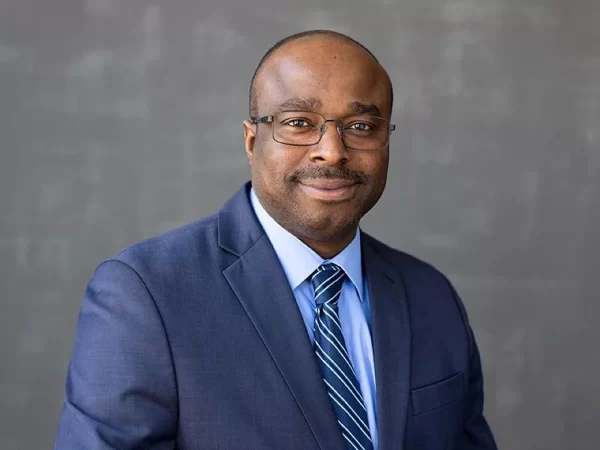Dhanya Ramji: President of the Oberlin Chapter of The Pad Project
Photo courtesy of Dhanya Ramji
Dhanya Ramji
Dhanya Ramji is a first-year College student who started a branch of The Pad Project after arriving at Oberlin last fall.
This interview has been edited for length and clarity.
What is The Pad Project?
It’s an international nonprofit organization that works to end the stigma of periods for all people who menstruate, and also increase menstrual equity. Basically, it’s founded on the idea that no person who menstruates should be stopped from going to school as a result of being on their period. It combats the grand distribution of inequity in relation to period care, raises awareness about what period goods are, and educates on that.
What inspired you to make a branch of this project at Oberlin?
I got really involved with The Pad Project my first year. I’m a dancer, so I did my solo performance, and I wanted to dedicate it to The Pad Project, so in lieu of giving me gifts, people would raise money for the organization. So then I got in contact with The Pad Project and started doing work with them. I became an ambassador for them, and what that meant was I got to work with so many other people who had the same dedication and devotion that I did. It all started for me when I realized that, coming from an Indian background, there’s a huge stigma surrounding menstruation and even talking about it with regard to the way women are treated in India, like how some girls in villages can’t go to school when they have their periods because they don’t have access to period products, and boys don’t know what periods are, and there’s no discussion. Listening to my grandmother’s stories, and seeing the way the stigma had trickled down even to my generation, made me want to get involved. After becoming a part of the ambassador program, I was able to work with a lot of other individuals, hear stories, and create actual change about this stuff that was really important to me. When I got here, I wanted to spread that work in this area as well, because I know that although Oberlin specifically is slightly wealthier, the Elyria area and Cleveland are not as wealthy, and menstrual inequality exists in every part of the country, so I wanted to give back to this community because I’m part of it now. I thought it would be really cool to have visiting speakers come and educate here because I think any place can benefit from learning more about what menstrual inequality is and how to combat it.
What kinds of projects have you done with The Pad Project here?
The club is new; I just started it when I came to school here this past September, but our biggest thing has been our menstrual products drive. We raised, I want to say, over 2,400 pads, tampons, and liners, and we donated it all to the Neighborhood Alliance, which is a shelter in Elyria. We put up a bunch of boxes, decorated them, put them all around campus, and a bunch of students and community members gave back, which was really, really awesome. Last semester, we hosted a screening of the documentary Period. End Of Sentence., which was created by The Pad Project and won the Oscar for Best Documentary Short Film in 2019. That’s actually how The Pad Project started — that’s their story. It’s a great documentary, so everyone should watch it, in my opinion. Then we did a little conversation about it, what it inspired, and how people felt after it. We also participated in Take Back the Night with Survivors of Sexual Harm and Allies — I gave a speech there and we had a table.
What kind of responses have you seen from the Oberlin community, students, or the broader community?
In order to start a club, you need a few to sign off on it, and it was basically my roommate and two people who lived down the hall because that’s who I knew. I was a first year, and I was really worried that we would be the whole club and that people who didn’t know me wouldn’t want to join. Even for our menstrual products drive, it was a fear of mine that nobody would really donate. But the response from the community and from the College has been so overwhelmingly supportive and amazing. I think I first started to feel the support when we put a box in the Oberlin Public Library, and I got an email a week into our drive when the woman asked me to pick up the box because it had been filled. And I was like, “That’s crazy.” I didn’t even expect that a week into a month-long drive. So we picked up the box, and they made another box for us. People were so willing to help and be included in it. Also just seeing people repost our stories who I don’t know or who I’ve seen on campus but haven’t talked to — like upperclassmen — was really heartwarming. And then just generally with the response we’ve gotten — The Pad Project won an award on Sunday at the Student Life Enhancement Awards, which is really awesome because again, to me it’s this tiny little club, but to the Oberlin community, it’s a real thing. It’s awesome to see people responding so positively to it.
Do you have any plans or goals going forward for the project?
I have a lot of plans that I want along with my team — we work together to come up with ideas for future semesters. I think something that would be really cool is going into the middle school, the high school, and the elementary schools and doing little workshops. Obviously catered to be age group-appropriate, but doing workshops and having a little Q&A with them or screening Period. End of Sentence. with them would be really awesome and informative. Coming to college, I’m now open to talking about my period, but even then, I get a little bit nervous. When I was in high school and middle school, I was terrified to speak about it even to my friends — I used all the code names and everything, so I think just talking about it and being open about it would be really awesome. Another thing I think would be pretty cool is having guest speakers come, either through Zoom or in person. I know there’s speakers on campus who have focused on women’s health and these topics, so having them speak would be really cool. The Pad Project also made another film called Long Line of Ladies, so screening that at one point would be cool.


